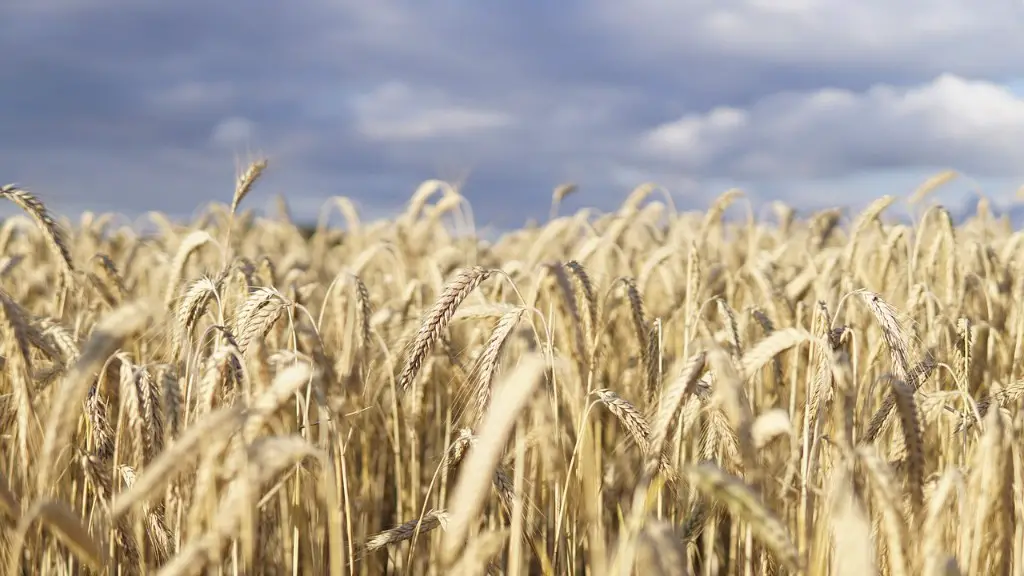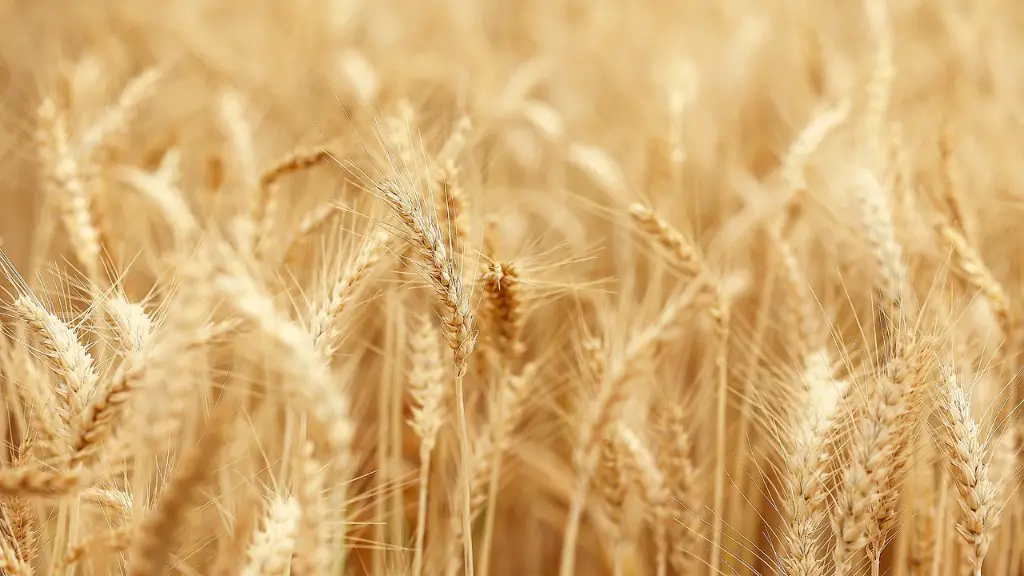If you’re interested in working in the agriculture industry, there are a few things you can do to make yourself a more attractive candidate to potential employers. First, consider pursuing a degree or certificate in agriculture or a related field from a college or university. This will give you the basic knowledge and skills you need to be successful in the industry. You can also look for internships or apprenticeships with agricultural businesses to get some hands-on experience. Finally, networking with professionals already working in the agriculture industry can help you learn more about the industry and potentially land a job. By taking these steps, you can increase your chances of getting hired in the agriculture industry.
There is no one-size-fits-all answer to this question, as the best way to get into the agriculture industry may vary depending on your qualifications and experience. However, some ways to get into the agriculture industry include studying agriculture or a related field at university, working on a farm or in an agricultural business, or joining a professional organisation such as the National Farmers’ Federation.
How do I start an agricultural career?
There are a few things to consider if you want to pursue a career in crop science or biology. Firstly, you will need to graduate from college or complete the courses in these subjects. Secondly, it is beneficial to look for cooperative positions and work your way up to a manager position. Lastly, in high school, take agriculture classes and gain experience working with crops. This will give you a strong foundation to pursue a career in this field.
There are many different types of jobs in agriculture, and the pay can vary greatly depending on the position. Some of the highest paying jobs in agriculture include agricultural engineers, agronomists, agricultural food scientists, veterinarians, winemakers, and farm managers. Agricultural sales representatives can also earn a good salary.
Is it hard to get a job in agriculture
If you’re interested in a career in agriculture, there are a few things you should keep in mind. First, the opportunities in this field are vast and varied. There are careers in everything from farming and ranching to food science and marketing. There are also opportunities to work in government and policy, as well as in education and research.
Second, it’s important to have a passion for the agricultural industry. This is a demanding field, and it’s important to be motivated by more than just a paycheck. Those who are successful in agriculture are typically those who have a true passion for the work.
Finally, it’s important to be willing to work hard. Agriculture is a demanding field, and those who succeed are typically those who are willing to put in the long hours and hard work required. If you’re willing to put in the effort, finding a career in agriculture can be a rewarding experience.
The Agricultural, Food, and Natural Resources career cluster is divided into seven pathways: Agribusiness Systems, Animal Systems, Environmental Service Systems, Food Products & Processing Systems, Natural Resources Systems, Plant Systems, and Power, Structural & Technical Systems. Each pathway offers different opportunities for students to explore careers in the agricultural, food, and natural resources industries.
What is the best career in agriculture?
There are many different careers in agriculture, from farm managers and agricultural engineers to soil and plant scientists and conservation planners. Agricultural economists play an important role in helping farmers and other agricultural businesses make sound financial decisions, and agricultural salespeople are responsible for marketing and selling agricultural products.
The best agriculture jobs can pay up to $100,000 per year. Agriculture science and engineering careers focus on soil, plant life cycles, irrigation, or farm machinery. You could also work in this industry as a livestock veterinarian.
Can you make a living in agriculture?
There are a lot of career options in agriculture. As the world keeps revolving, there are now different ways you can earn from agriculture without owning a farm or even physically being present on the farm.
There is a growing demand for agricultural economists in operational positions, marketing and logistics. They can apply for jobs in the handling and logistics of horticultural crops, fruit, vegetables, grain and oilseed crops and animals.
Is it hard to study agriculture
No, BSc Agriculture is not a tough course. It is a course that requires dedication and hard work, but it is not a tough course. The course is designed to give students the knowledge and skills they need to succeed in the agricultural industry.
As an increasing number of students look for entrepreneurship and career opportunities in agriculture and crop science, the demand for agriculture as a career is on a rise. BSc (Hons) Agriculture is the best program to build a successful career in Agriculture. The coursework of the program is designed to provide students with the skills and knowledge necessary to succeed in the industry. The program includes a strong focus on business and marketing, as well as a solid foundation in the sciences. With a BSc (Hons) Agriculture, students will be prepared to take on leadership roles in the agriculture industry.
How long does it take to study agriculture?
The Diploma in Agriculture is a three-year programme that provides students with the skills and knowledge needed to pursue a career in agriculture. The programme covers a wide range of topics, including biology, chemistry, physics, and mathematics.
The average agriculture salary in South Africa is quite high compared to other countries. Entry-level positions still pay quite well, while experienced workers can make a very good salary. With the right experience and qualifications, workers in this field can make a very good living.
What are 5 career opportunities in agriculture
There are a number of career opportunities available in the field of agriculture. Agricultural extension, agricultural engineering, animal science, agricultural economics, crop science, soil science, forestry, and horticulture are just a few of the many possible fields of study. With the world increasingly focused on sustainability and food security, those with a background in agriculture will be in high demand.
Farming is one of the most stressful occupations in the US. The following are some of the common stressors we encounter: Financial pressures, debt load, dependence on unpredictable weather and volatile markets. All of these can lead to immense stress and anxiety. If you are a farmer, it is important to find ways to cope with these stressors. Some helpful coping mechanisms include: talking to someone you trust about your stress, focusing on the positive aspects of farming, and taking time for yourself to relax and rejuvenate.
What are 4 needed skills in agriculture?
Just as with any business, being a successful farmer requires a unique set of skills. In addition to the obvious skillset required for the actual farming itself, farmers must also be adept at problem-solving, interpersonal skills, farm management, and organization.
Problem-solving skills are important for farmers as they are constantly faced with challenges, whether it be in the form of weather, pests, or equipment malfunction. Being able to troubleshoot and come up with creative solutions is crucial for keeping the farm running smoothly.
Interpersonal skills are important for farmers as they need to be able to communicate effectively with their employees, customers, and suppliers. Building and maintaining good relationships is essential for the success of any business, and this is especially true in farming.
Farm management skills are essential for farmers as they need to be able to plan and organize the various tasks and activities that need to be carried out on the farm. This includes everything from deciding what crops to plant to scheduling employee shifts.
Organizational skills are important for farmers as they need to be able to keep track of all the different moving parts on the farm. This includes everything from finances and inventory to employee records and crop yield data. Being able to effectively organize and manage all
The agriculture, food and natural resources industry is booming and there are a variety of jobs in this field that are growing at a rapid pace. Here are 10 of the fastest growing jobs in this industry:
1. Animal Caretakers: Job growth in this profession is projected to be 1647%.
2. Pest Control Workers: Job growth in this profession is projected to be 802%.
3. Refuse and Recyclable Material Collectors: Job growth in this profession is projected to be 718%.
4. Agricultural Equipment Operators: Job growth in this profession is projected to be 662%.
5. Farmers and Ranchers: Job growth in this profession is projected to be 553%.
6. Soil and Plant Scientists: Job growth in this profession is projected to be 517%.
7. Food Scientists and Technologists: Job growth in this profession is projected to be 491%.
8. Agricultural Inspectors: Job growth in this profession is projected to be 485%.
9. Agricultural and Food Scientists: Job growth in this profession is projected to be 478%.
10. Foresters: Job growth in this profession is projected to be 467
What collar job is agriculture
Blue-collar workers are typically paid hourly wages, as opposed to salaries, and may work inShift work. Due to the physically demanding nature of blue-collar jobs, workers in these occupations often haveHigh rates of injury and illness.
These are the best global universities for agricultural sciences in the United States.Per the U.S. News and World Report, these institutions have strong programs in agricultural research, teaching and Extension. They also have strong reputations among academics worldwide.If you’re interested in pursuing a career in agricultural sciences, these universities are a good place to start your search.
Warp Up
There are many ways to get into the agriculture industry. One way is to get a job on a farm. Another way is to get a job in an agricultural company.
The agriculture industry offers many opportunities for those seeking careers in the field. There are a variety of ways to get into the agriculture industry, depending on your interests and qualifications. There are many schools that offer programs in agriculture, and there are also many ways to learn about agriculture online. No matter what your approach, if you’re interested in working in the agriculture industry, there are plenty of options available to you.





